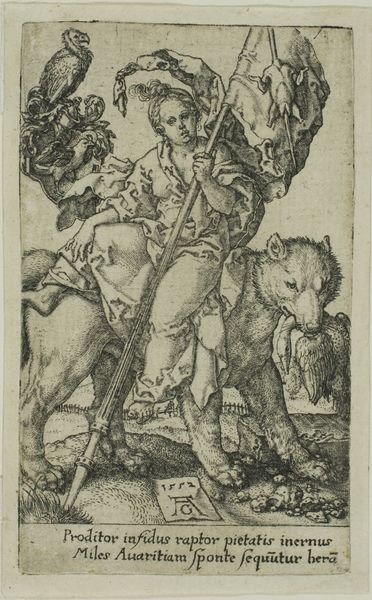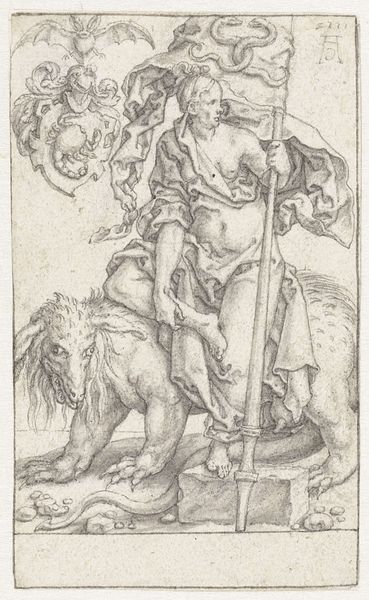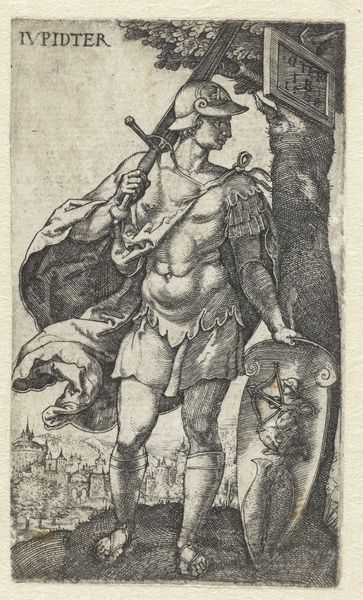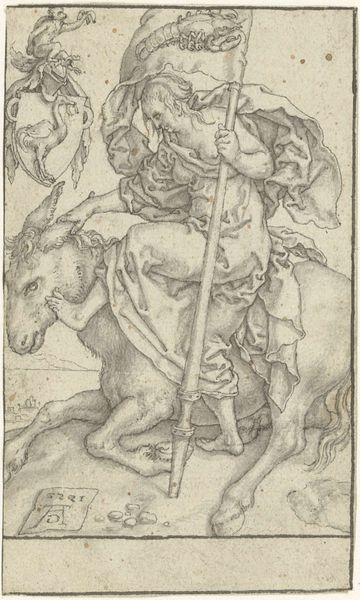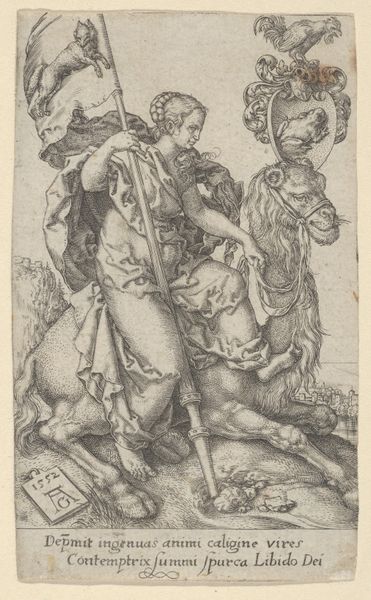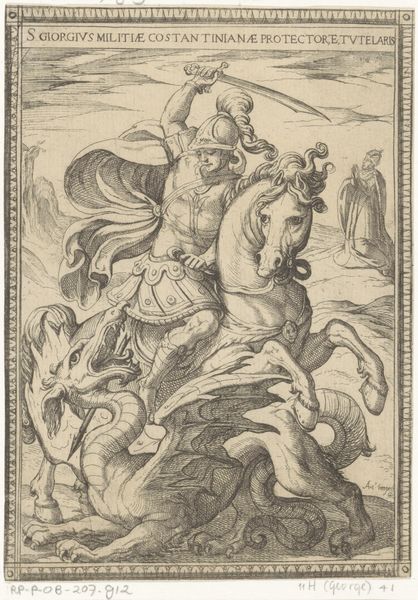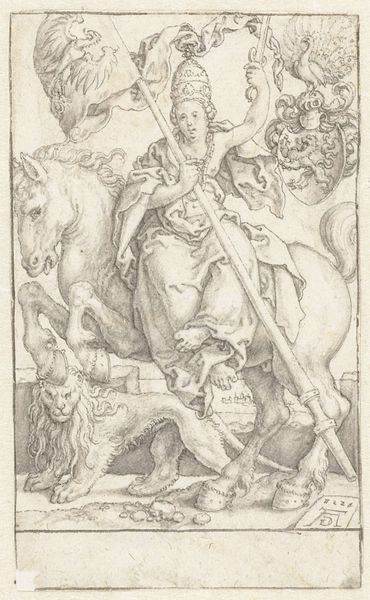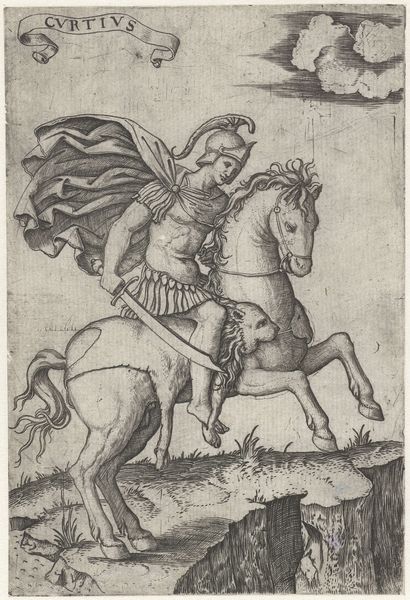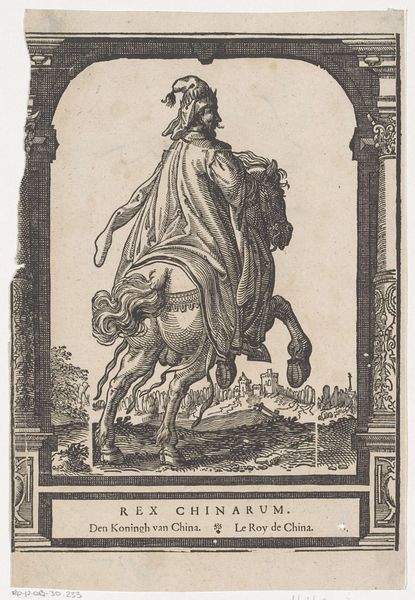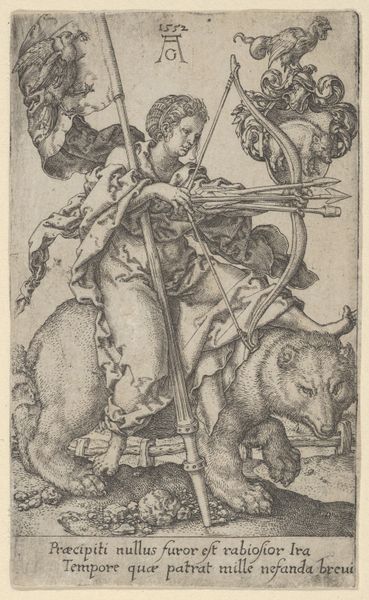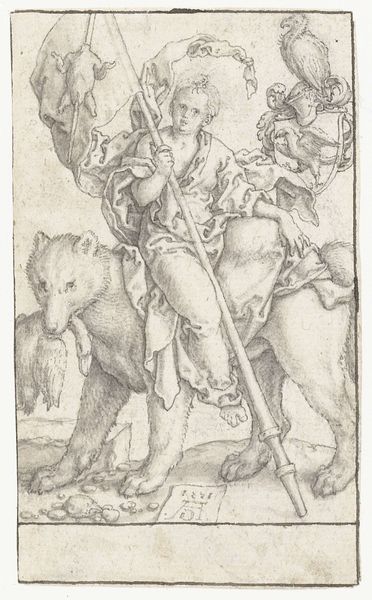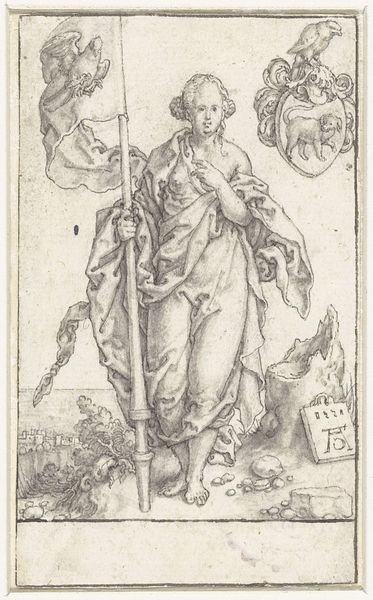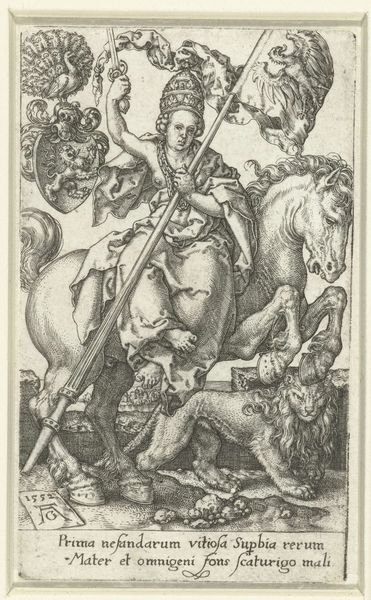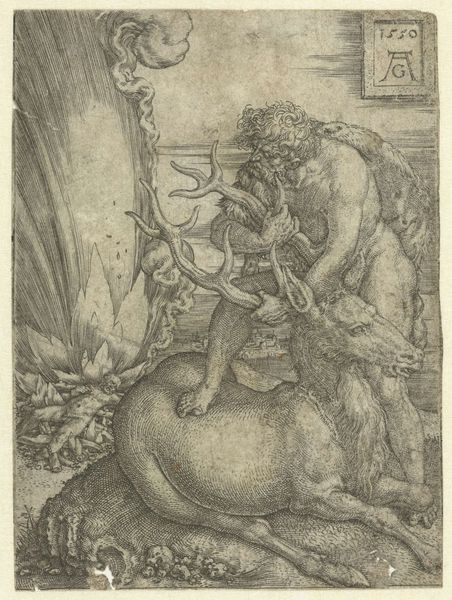
drawing, print, engraving
#
drawing
#
allegory
# print
#
mannerism
#
figuration
#
history-painting
#
engraving
Dimensions: Sheet: 4 1/8 × 2 1/2 in. (10.4 × 6.3 cm)
Copyright: Public Domain
Heinrich Aldegrever created this small engraving, Envy, around 1552 as part of his series, The Vices. Born in a period of immense religious and social upheaval, Aldegrever lived through the Reformation and the German Peasants' War, both of which greatly influenced his artistic perspective. Here, Envy is depicted as a woman riding a monstrous creature, carrying a banner adorned with snakes, symbols of deceit and malice. In a patriarchal society where women were often morally policed, the choice to represent envy as female reflects historical gender biases associating women with sin and temptation. The inscription at the bottom translates to "A face foul with poison, a voracious pallor; it lays bare the seed of inward evil." It is a stark reminder of the destructive nature of envy, preying on internal insecurities. Envy offers us a window into the moral anxieties of the 16th century, while prompting us to consider the ways in which social biases shape the representation and understanding of human behavior.
Comments
No comments
Be the first to comment and join the conversation on the ultimate creative platform.
